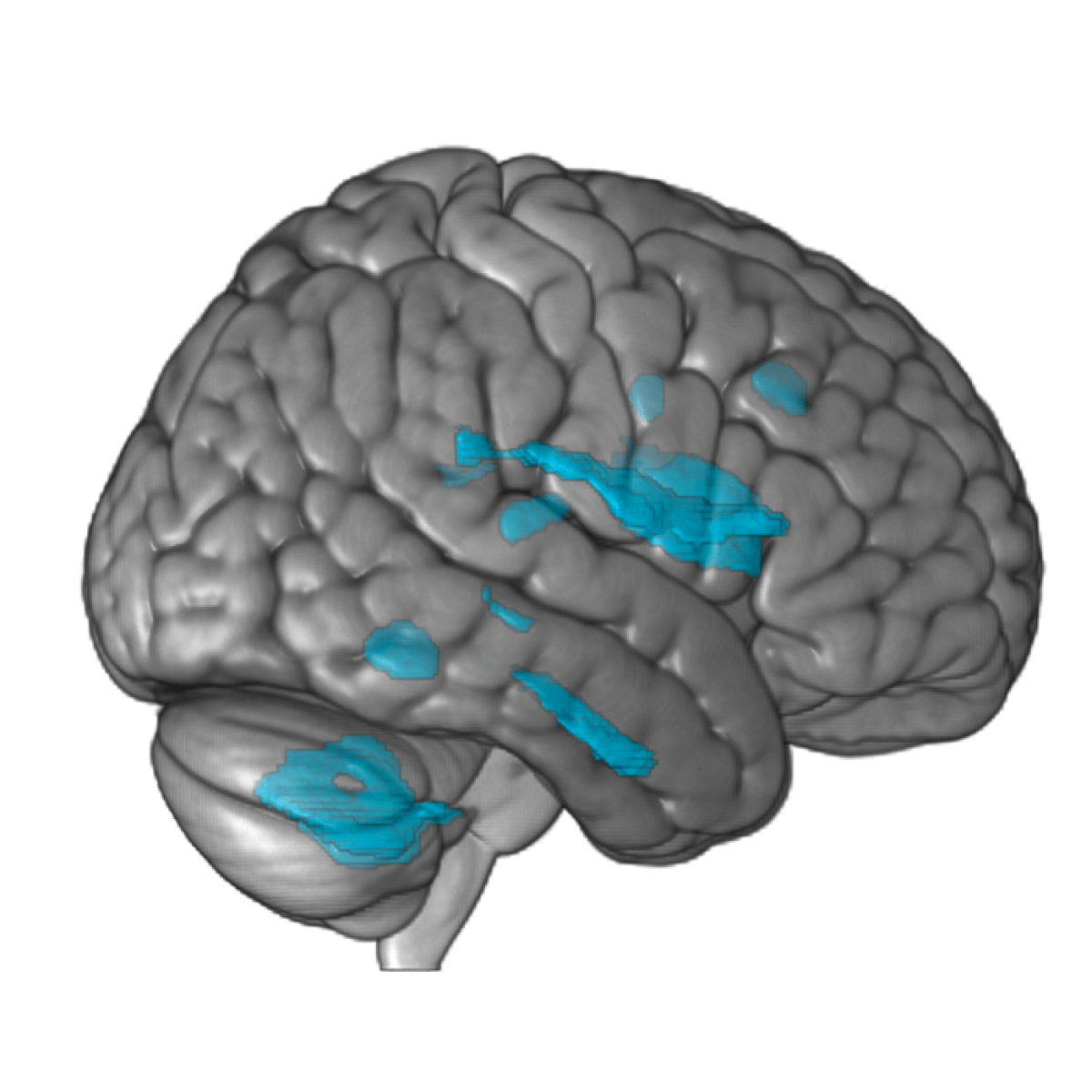© 2023 41 Pushups, LLC

BRAIN NEWS, ENTERTAINMENT NEWS
Don’t play an instrument? No problem! Even listening to music prevents dementia
APRIL 18, 2023
GENEVA, Switzerland — As we age, cognitive decline is more likely to develop. So, how can we train our brain to fight it? Researchers from the University of Geneva (UNIGE), HES-SO Geneva, and EPFL say the answer may be hiding in music. Their study finds that both listening and learning to play music could prevent a decline in brain health.
Leading up to cognitive decline, the brain loses its “plasticity,” as well as gray matter, which holds the neurons that keep the brain sharp. Once this decline starts, working memory is the hardest to maintain. This type of memory includes things like recalling a phone number long enough to jot it down on paper, or language translations. The researchers studied how practicing music could combat this degradation using 132 healthy older and retired adults between the ages of 62 and 78. Importantly, all of these participants never took musical lessons for more than six months in their lifetime.
‘‘We wanted people whose brains did not yet show any traces of plasticity linked to musical learning. Indeed, even a brief learning experience in the course of one’s life can leave imprints on the brain, which would have biased our results,’’ explains Damien Marie, first author of the study and a research associate at the CIBM Center for Biomedical Imaging, the Faculty of Medicine and the Interfaculty Center for Affective Sciences (CISA) of UNIGE, and the Geneva School of Health Sciences, in a university release.
Best Frozen Pizzas, According To The Pros_ Top 5 Pies Most Recommended By Experts.mp4
0 seconds of 7 minutes, 31 seconds
Study authors split the participants randomly into two classes, piano playing and musical awareness. For the latter, participants had to actively listen and focus on instrument recognition and analysis of musical properties across different musical styles. Both classes were an hour long and each class had 30 minutes of homework daily.
‘‘After six months, we found common effects for both interventions. Neuroimaging revealed an increase in grey matter in four brain regions involved in high-level cognitive functioning in all participants, including cerebellum areas involved in working memory. Their performance increased by 6% and this result was directly correlated to the plasticity of the cerebellum,’’ says study author Clara James, a lecturer at the Faculty of Psychology and Educational Sciences of UNIGE and full professor at the Geneva School of Health Sciences.

Further, sleep quality, the number of lessons followed over the intervention course, and the daily training quantity, all positively impacted the improvements noted. The team did note that the grey matter in the right primary auditory cortex — an area of the brain that processes sound — remained stable in pianists. In the active listening group, it went down.
‘‘In addition, a global brain pattern of atrophy was present in all participants. Therefore, we cannot conclude that musical interventions rejuvenate the brain. They only prevent ageing in specific regions,’’ says Marie.
Overall, the results show that listening and practicing music can preserve cognition. This is welcoming news, considering that so many people around the world enjoy music. The study authors now emphasize the inclusion of these activities in policy for healthy aging. Looking ahead, they plan to evaluate the potential of music in those with mild cognitive impairment, which is the grey area between normal aging and dementia.
The findings appear in the journal NeuroImage.
TAGS: BRAIN ACTIVITY, BRAIN HEALTH, COGNITIVE DECLINE, INSTRUMENTS, LISTENING TO MUSIC, MUSIC
About the Author
Shyla Cadogan
Shyla Cadogan is a recent graduate from the University of Maryland, College Park with a Bachelor’s of Science in Nutrition and Food Science. She is on her way to becoming a Registered Dietitian, with next steps being completion of a dietetic internship at the University of Maryland Medical Center where she currently is gaining experience with various populations and areas of medical nutrition such as Pediatrics, Oncology, GI surgery, and liver and renal transplant. Shyla also has extensive research experience in food composition analysis and food resource management.
The contents of this website do not constitute advice and are provided for informational purposes only. See our full disclaimer
From Our Partners
Almost Half of Older Americans Get This Crucial Social Security Fact Wrong
Here’s how much Social Security income Joe Biden is receiving
Pence Wants to Make The Most Dramatic Change to Social Security
Related Studies
Extraordinary medical condition gives artist ability to see colors, shapes when she hears sounds6 HOURS AGO
A simple memory test could predict dementia 10 years before symptoms appearAPRIL 19, 2023
Adding a small plant to your desk can improve your memory and make you happierAPRIL 18, 2023
Leave a Reply
Your email address will not be published. Required fields are marked *
Comment *
Name *
Email *
Website
Recent Studies
Best Video Doorbells: Top 5 Devices Most Recommended By ExpertsAPRIL 19, 2023
Best Murder Mystery Books Of All Time: Top 5 Suspenseful Novels, According To ExpertsAPRIL 19, 2023
Best Olive Oils: Top 5 Brands Most Recommended By ExpertsAPRIL 19, 2023
New drug significantly delays symptoms for those with early signs of multiple sclerosisAPRIL 19, 2023
Best Guitarists Of All Time: Top 5 String Shredders, According To ExpertsAPRIL 19, 2023
No fooling me! Here’s why monkeys see right through certain magic tricksAPRIL 19, 2023
© 2023 41 Pushups, LLC
A RAPTIVE PARTNER SITE